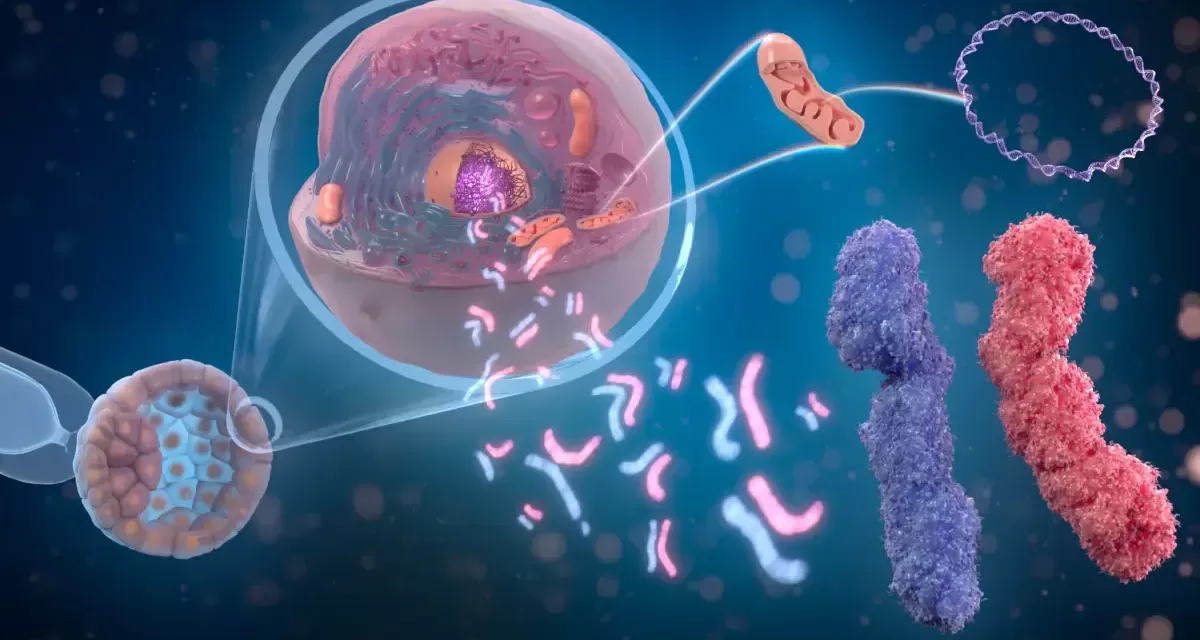March 6, 2025
A groundbreaking study from researchers at the University of California, San Francisco (UCSF) may have unlocked the mystery of why women generally outlive men and maintain cognitive function longer. The study, published in Science Advances on March 5, reveals that the so-called ‘silent’ X chromosome in females becomes active in later years, potentially helping to slow cognitive decline.
The Silent X Awakens
Women carry two X chromosomes, but one is typically inactivated early in development and stored in the cell as a Barr body, leading scientists to believe it had little function. However, UCSF researchers found that in aging female mice—equivalent to about 65 human years—this dormant X chromosome begins to express genes that strengthen brain connections, thereby enhancing cognition.
“In typical aging, women have a brain that looks younger, with fewer cognitive deficits compared to men,” said Dr. Dena Dubal, senior author of the study and professor of neurology at UCSF. “These results show that the silent X in females actually reawakens late in life, probably helping to slow cognitive decline.”
Tracking Genetic Activity in Aging Brains
To investigate whether genes from the silent X chromosome become active, Dubal collaborated with genomics expert Dr. Vijay Ramani and biochemistry professor Dr. Barbara Panning. The team created hybrid mice from different strains, ensuring that one X chromosome was initially inactive. By tracking gene expression in the hippocampus—a region crucial for learning and memory—they found that approximately 20 genes, many linked to brain development and cognitive function, were unexpectedly active in aging female mice.
“Aging had awakened the sleeping X,” Dubal noted.
Lead author Margaret Gadek, a graduate student in UCSF’s MD-Ph.D. program, emphasized the significance of the findings. “We immediately thought this might explain how women’s brains remain resilient in typical aging, because men wouldn’t have this extra X,” she said.
A Gene That Boosts Brain Function
Among the reactivated genes, one in particular stood out: PLP1, a gene involved in the production of myelin—the protective insulation around nerve fibers that ensures efficient communication between brain cells. Older female mice exhibited more PLP1 activity in the hippocampus compared to males, suggesting that this gene plays a role in preserving cognitive abilities.
To test its effects, researchers artificially increased PLP1 expression in both male and female aging mice. The result? Improved performance on learning and memory tests in both sexes.
The team is now exploring whether a similar process occurs in human brains. An analysis of donated brain tissue from older adults, led by UCSF Memory and Aging Center’s Dr. Katilin Casaletto, revealed that only women had elevated PLP1 levels.
A New Avenue for Cognitive Health Research
The findings raise exciting possibilities for future treatments aimed at slowing cognitive decline in both men and women. “Cognition is one of our biggest biomedical challenges,” Dubal said. “But things are changeable in the aging brain, and the X chromosome clearly can teach us what’s possible. Are there interventions that can amplify genes like PLP1 from the X chromosome to slow decline as we age?”
As scientists continue to investigate the role of the X chromosome in cognitive resilience, this study provides a new perspective on brain aging and highlights potential pathways for therapeutic interventions.
Disclaimer: This article is based on ongoing research, and while the findings are promising, further studies in human subjects are required to confirm the results. The information provided is for educational purposes and should not be interpreted as medical advice.












